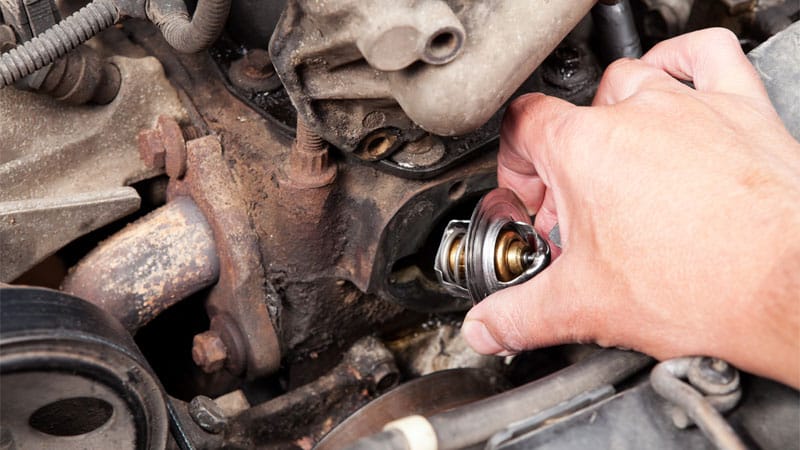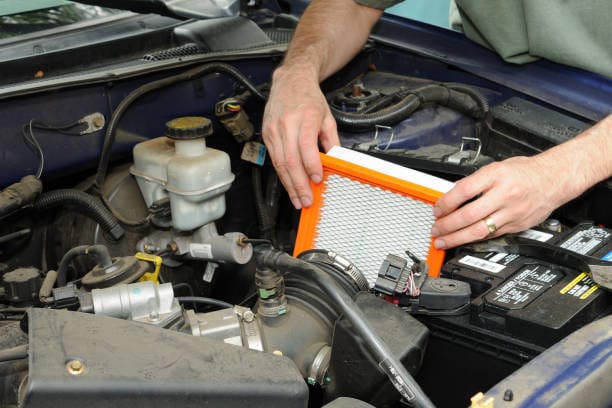Car overheating is a problem many vehicle owners face, especially in India, where high temperatures and heavy traffic are common. An car overheating engine can lead to costly repairs and even permanent damage if not addressed promptly. This guide will help you understand the causes, recognise the signs, and take appropriate actions to fix and prevent overheating issues.
By following these tips, you can ensure your car stays in good condition, even in the challenging driving conditions of India.
What Causes a Car to Overheat?
Your car’s engine generates heat while running, and the cooling system is responsible for maintaining a safe temperature. Car overheating happens when the cooling system fails or is unable to manage the heat effectively. Let’s explore the common reasons behind this issue:
1. Low or Insufficient Coolant
Coolant, also known as antifreeze, plays a critical role in regulating the engine’s temperature. If your car has low coolant levels, the engine won’t stay cool, leading to overheating. This is often caused by leaks in the cooling system or a lack of regular maintenance.

2. Coolant Leaks
Leaks in the radiator, hoses, or water pump can lead to a loss of coolant, reducing the system’s ability to regulate engine heat. These leaks can occur due to worn-out parts or physical damage to the components.

3. Clogged Radiator
The radiator helps cool the coolant before it is recirculated through the engine. A clogged radiator can block the flow of coolant and reduce heat dissipation, causing the engine to overheat. Dirt, debris, and mineral deposits often lead to blockages.

4. Faulty Thermostat
The thermostat controls the flow of coolant between the engine and radiator. A malfunctioning thermostat that is stuck in the closed position prevents the coolant from circulating, leading to rapid overheating.

5. Water Pump Failure
The water pump ensures that coolant circulates through the engine and radiator. If the water pump is damaged or fails, the coolant won’t flow properly, causing a spike in the engine’s temperature.

6. Extreme Weather Conditions
India’s harsh summers and high humidity can put additional stress on the cooling system, especially if the car is not well-maintained.
7. Prolonged Idling in Traffic
Heavy traffic and long hours of idling can reduce airflow through the radiator, making it harder for the cooling system to function effectively.
How to Recognise the Signs of Overheating
Spotting the signs of an car overheating engine early can save you from expensive repairs. Here are some common symptoms to watch out for:
1. Temperature Gauge Warning
The temperature gauge on your car’s dashboard monitors the engine’s temperature. If the needle moves towards the red zone or the “H” (hot) mark, it’s an immediate warning sign that your engine is overheating.
2. Steam from the Bonnet
Steam or smoke rising from under the bonnet is a clear indication that the engine is overheating. This usually happens when the coolant starts boiling.
3. Burning Odours
An car overheating engine can cause plastic parts and rubber hoses to melt, resulting in a burning smell. This smell might also indicate oil or coolant burning off.
4. Dashboard Warning Lights
Modern cars often feature a dashboard warning light that activates when the engine temperature exceeds safe levels. This light could be shaped like a thermometer or a radiator.
5. Sluggish Engine Performance
When an engine overheats, it may lose power, struggle to accelerate, or begin to misfire. This is often a sign that the engine’s safety systems are limiting performance to prevent further damage.
Immediate Actions to Take When Your Car Overheats
If your car starts showing signs of car overheating, act quickly to avoid serious damage. Here’s what you should do:
- Turn Off the Air Conditioner: The air conditioner puts extra strain on the engine. Turning it off reduces the load on the engine and can help lower the temperature.
- Turn On the Heater: Switching on the heater redirects heat away from the engine to the car’s cabin, helping to cool the engine.
- Pull Over Safely: Stop the car in a safe location as soon as possible. Continuing to drive with an overheated engine can cause severe and permanent damage.
- Let the Engine Cool Down: Do not attempt to open the bonnet immediately. Wait at least 15-30 minutes for the engine to cool down. Opening the radiator cap while the engine is hot can result in burns.
- Check the Coolant Reservoir: Once the engine has cooled, inspect the coolant reservoir. If it’s low, top it up with coolant or water as a temporary solution.
- Look for Leaks: Check for visible leaks under the car. If you notice coolant dripping, the issue might require professional attention.
How to Fix Overheating Issues
Once you’ve taken immediate action to cool your car, addressing the root cause is essential. Here are some common fixes:
- Flush and Replace Coolant: Over time, coolant can become contaminated or lose its effectiveness. Flushing the system and replacing the coolant can resolve many car overheating problems.
- Repair Coolant Leaks: Fixing leaks in the radiator, hoses, or other cooling system components is crucial to maintaining proper coolant levels.
- Replace the Thermostat: If the thermostat is stuck or malfunctioning, replacing it can restore the proper flow of coolant.
- Clean or Replace the Radiator: A clogged radiator may need professional cleaning or replacement to ensure efficient heat dissipation.
- Check and Replace the Water Pump: A damaged or worn-out water pump should be replaced to allow proper circulation of coolant.
- Inspect the Cooling Fan: The cooling fan helps regulate the temperature of the radiator. If it’s not functioning, repairing or replacing the fan can prevent car overheating.
Preventative Measures to Avoid Overheating
Preventing your car from car overheating is always better than fixing the problem later. Here are some tips to keep your engine cool.
- Perform Regular Maintenance: Schedule routine check-ups with a trusted mechanic. Ensure the cooling system is inspected for potential issues.
- Check Coolant Levels Frequently: Monitor the coolant reservoir every couple of weeks, especially before long trips.
- Keep the Radiator Clean: Clean the radiator regularly to remove dirt and debris that can block airflow.
- Use Quality Coolant: Ensure you use the right type of coolant for your vehicle and climate. Quality coolant is essential for efficient heat management.
- Plan Your Drives Wisely: Avoid driving during the hottest parts of the day and limit idling in traffic whenever possible.
The Impact of Overheating on Indian Roads
In India, where traffic congestion and high temperatures are a daily reality, car overheating can be more than just a mechanical issue. Here are some of its broader impacts:
- Traffic Disruptions: A broken-down car can cause massive traffic jams.
- Environmental Concerns: Leaking coolant can harm the environment and lead to penalties under pollution control laws.
- Safety Risks: Sudden breakdowns in busy traffic can endanger drivers, passengers, and pedestrians.
When to Seek Professional Help
If your car overheats frequently or the problem persists even after basic fixes, consult a professional mechanic. Many Indian cities now offer doorstep car repair services for added convenience.
Conclusion
Car overheating is a common but preventable car problem. By understanding its causes, recognising the signs, and taking immediate action, you can protect your engine from severe damage. Regular maintenance, proper coolant management, and timely repairs can help you avoid overheating issues and ensure a smoother driving experience.
Whether you’re navigating India’s bustling cities or planning a long road trip, keeping your car’s cooling system in top condition is essential for safety and reliability.
Take Charge of Your Car’s Health with My Car Wisdom
Don’t let overheating or car troubles ruin your driving experience. At My Car Wisdom, we provide expert advice, practical tips, and in-depth insights to help you maintain your vehicle with confidence—perfectly tailored for the unique challenges of Indian roads.
🚗 Looking for expert car care tips? Explore our blogs for step-by-step guidance on troubleshooting, maintenance, and more.
🔧 Confused about car problems? From choosing the right vehicle to understanding car care essentials, we’ve got you covered with trusted solutions.
📩 Stay ahead of car issues! Subscribe to My Car Wisdom and receive the latest updates, expert recommendations, and tips to keep your car in top shape.
Raja Yadav, the content writer at My Car Wisdom, brings a unique voice and style to our blog. With a knack for storytelling and a keen eye for detail, Raja ensures that every piece of content is informative, engaging, and easy to understand. His focus is on delivering high-quality articles that cater to both novice car owners and seasoned automotive enthusiasts.




